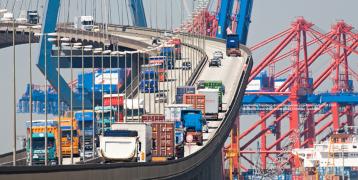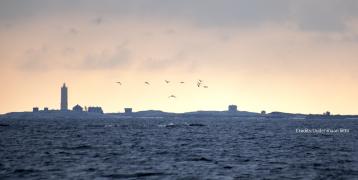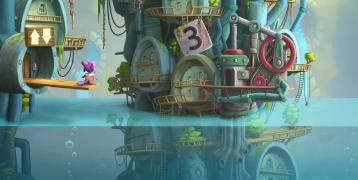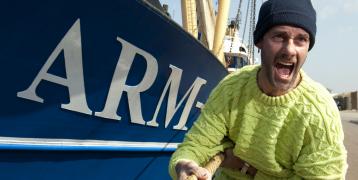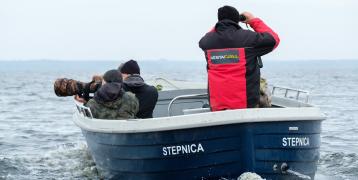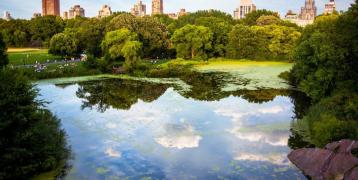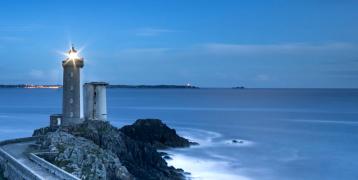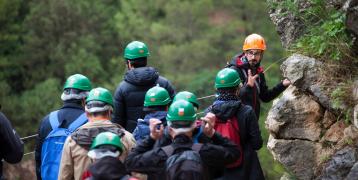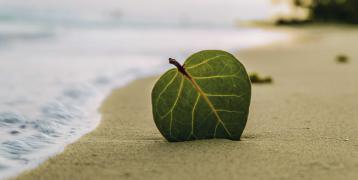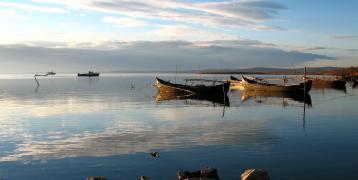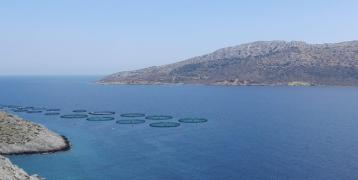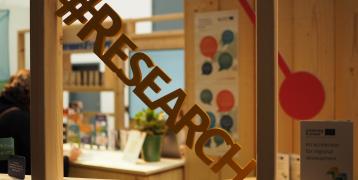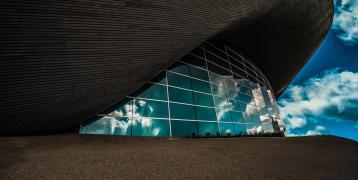The Blue Economy for European regions
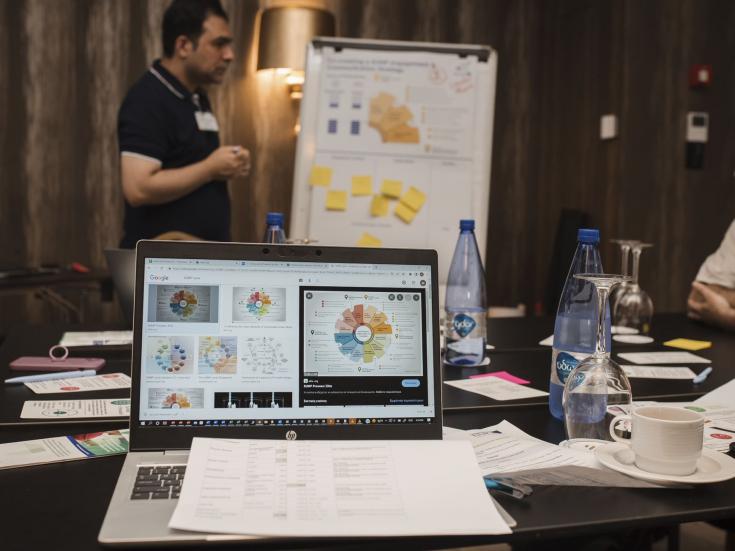
The Blue Economy is an important sector in European Union (the EU Blue Economy report 2022). It employs close to 4.45 million people, and generates around €667.2 billion in turnover and €183.9 billion in gross value added (EU Blue Economy Observatory). The Blue Economy’s most important sectors include marine living resources (fisheries), marine non-living resources, marine renewable energy, port activities, shipbuilding and repair, maritime transport, and coastal tourism.
The Blue Economy is experiencing the emergence and growth of innovative sectors that include marine renewable energy (ocean energy, floating solar energy and offshore hydrogen generation), blue bioeconomy and biotechnology, desalination, maritime defence, security and surveillance, and research and infrastructure (submarine cables, robotics).
These sectors have significant potential for economic growth, sustainability transition, employment creation and require European regions to design and implement the most adapted and contextual innovation policies to harness the transformative capacity of the Blue Economy.
Additionally, the Blue Economy is key to solve societal grand challenges such as sea pollution, overfishing, loss of biodiversity, and climate change as well as promoting European security. For instance, the current Nord Stream leak incident highlights the immediate urgency that connects the Blue Economy to the EU Security Union Strategy.
The Blue Economy represents an essential component of the European Green Deal activities in the regions and Member States by safeguarding healthy oceans, seas, and waters (see specific strategies, for instance, Farm to Fork to Offshore Renewable Energy Strategy).
Moreover, the European Commission has launched a diverse range of initiatives to support the research and innovation activities for the Blue Economy and its green and digital twin transitions, they are:
- In Horizon Europe, with the Starfish 2030 mission that aims to Restore our Ocean and Waters by 2030.
- The ‘BlueInvest’ investment platform that aims to foster investment, innovation and sustainable growth in the Blue Economy, namely for SMEs.
- The Sustainable Blue Economy Strategy and smart specialisation Blue Growth strategy to support the sustainable growth of the marine and maritime sectors.
- The European Partnership for a climate neutral, sustainable and productive Blue Economy.
- Dedicated initiatives such as for the blue bioeconomy and blue biotechnology and EU algae initiative or marine renewable energy.
The Blue Economy offers many opportunities for regional sustainable development, especially for more peripheral coastal European regions. Interreg Europe projects are providing some policy solutions to promote the Blue Economy sector. Explore them below:
From a research and innovation perspective, different policy tools can be used to promote the Blue Economy, namely:
- Through the design of integrated strategies with a tailored innovation policy-mix to address multiple priorities
- The use of public procurement of innovation (PPI) to solve place-based societal challenges
- The creation of a collaborative centre of competence to combine different knowledge bases
- The design of innovation governance models to coordinate the Blue Economy at the regional level
The role of clusters working on the Blue Economy, for instance, Pôle Mer Méditerranée in France or the Blue Maritime Cluster in Norway, are also important intermediaries to connect place-based knowledge and assets with European policy directionalities (read our policy brief on Clusters: Driving the green and digital twin transitions).
Regional policymakers can develop integrated strategies to promote the Blue Economy sector. In ECORIS3, Las Palmas Ciudad del Mar 2030 is an integrated strategy to promote sustainable maritime activities in Las Palmas, Canary Islands, Spain with an innovation policy-mix that includes public-private initiatives, university-industry initiatives, educational programs, awareness programs, start-up programs, an updated regulatory framework…
Public procurement of innovation (PPI) is a policy tool to create new markets to solve place-based societal challenges. In IBUY, the Canary Islands has launched Canary Islands Geo Innovation Program 2030, a program that emerged from a public-private leadership to find sustainable innovation solutions for the aerial, terrestrial, and maritime environments.
The program has identified six challenges that are relevant to the unique environmental and institutional context in Canary Island, they are: High Altitude Platforms (HAPS), Geo Information Centre (GIC), safe and smart beaches, smart management of natural spaces, monitoring and control of marine habitats, safe and smart mobility.
The procurement process to develop solutions to the challenges goes through a three-step process:
- Request for Expressions of Interest from the market
- Selection of most relevant entities
- Drafting technical requirements and tendering conditions through innovation partnerships
The Blue Economy offers opportunities to build greater knowledge linkages between peripheral and core regions. In ISLANDS OF INNOVATION, the SCC—Small Craft Competence Centre—is a branch R&D unit of Tallin University of Technology that was created in the island of Saaremaa, Estonia, through the triple-helix leadership—university, businesses, and local government.
The centre provides services for design, engineering and testing of new materials and solutions in the small craft building sector, particularly focusing on boat building and marine engineering. It also provides training to companies and supports the marine engineering study programme by carrying out research activities on hydrodynamics.
The Blue Economy can benefit from new governance models. In GROW RUP, the region of Réunion, France, introduced a policy change with the creation of the Blue Institute to promote the development of the regional strategic Blue Economy sector. Being an island in the Indian Ocean, the Blue Economy offers many opportunities for Réunion.
The region was inspired from discussions with Interreg Europe partners and good practices from the Canary Islands and Martinique, such as, for instance, the Odyssea Caraibes Blue Growth to promote the development of the Blue Economy. The Blue Institute is a governance arrangement that aims to animate the regional Blue Economy sector, raise awareness and communicate the importance of the Blue Economy, and support regional stakeholders in applying for national and European funding.
Policymakers who aim to develop the Blue Economy sector can benefit from a peer review. For instance, the Policy Learning Platform organised peer reviews on the topics, explore them below.
In Vestland County, Norway, peers contributed to the development of the Northern Lights, Norway's biggest climate change mitigation project to Store CO2 permanently, and of the Energy Park, a climate-neutral hydrogen production, marine farming and reception, disposal and storage of CO2. Discover insights and suggestions from the peer review in the follow-up report.
In Boulogne-sur-mer – Calais Port with the Hauts de France Region, France, peers from leading European Port ecosystems shared their experiences and suggestions for designing Smart Port Strategies with a particular focus on innovative digital tools and services that could address the challenges of the cross- channel Ports of Calais and Boulogne. Discover insights and suggestions from the peer review in the follow-up report.

